Introduction
In the realm of construction and landscaping, compact track loaders stand out as indispensable tools that combine versatility and efficiency. Their unique design, featuring tracks instead of wheels, allows them to navigate challenging terrains while providing exceptional stability and traction.
However, for those considering renting this powerful equipment, understanding its various applications and the intricacies of the rental process is vital. From assessing project needs to navigating costs and ensuring safety, a well-informed approach can significantly enhance project outcomes.
This article delves into the essential aspects of compact track loaders, offering insights and practical tips to streamline the rental experience and maximize productivity on the job site.
Introduction to Compact Track Loaders: Definition and Uses
A compact vehicle, often called a CTL, is a versatile piece of construction machinery designed to perform a variety of tasks. It includes paths instead of wheels, which enables improved weight distribution and traction on soft or uneven surfaces. Compact machinery is frequently utilized for activities like:
- Grading
- Digging
- Lifting materials
This renders them perfect for landscaping, construction, and agricultural uses.
Their small size enables them to maneuver in tight spaces where larger machinery cannot operate, enhancing their utility in urban and residential projects. Along with small earthmoving machines, our equipment leasing services in Irving, TX, encompass a diverse selection of machinery like:
- Boom lifts
- Forklifts
- Excavators
All are accessible for the DFW Metroplex. We take pride in providing a straightforward leasing process and competitive rates, ensuring that you have the right equipment for your project needs.
Understanding the meaning and applications of small earthmoving machines is crucial for anyone considering a compact track loader rental, as it directly impacts project efficiency and effectiveness.
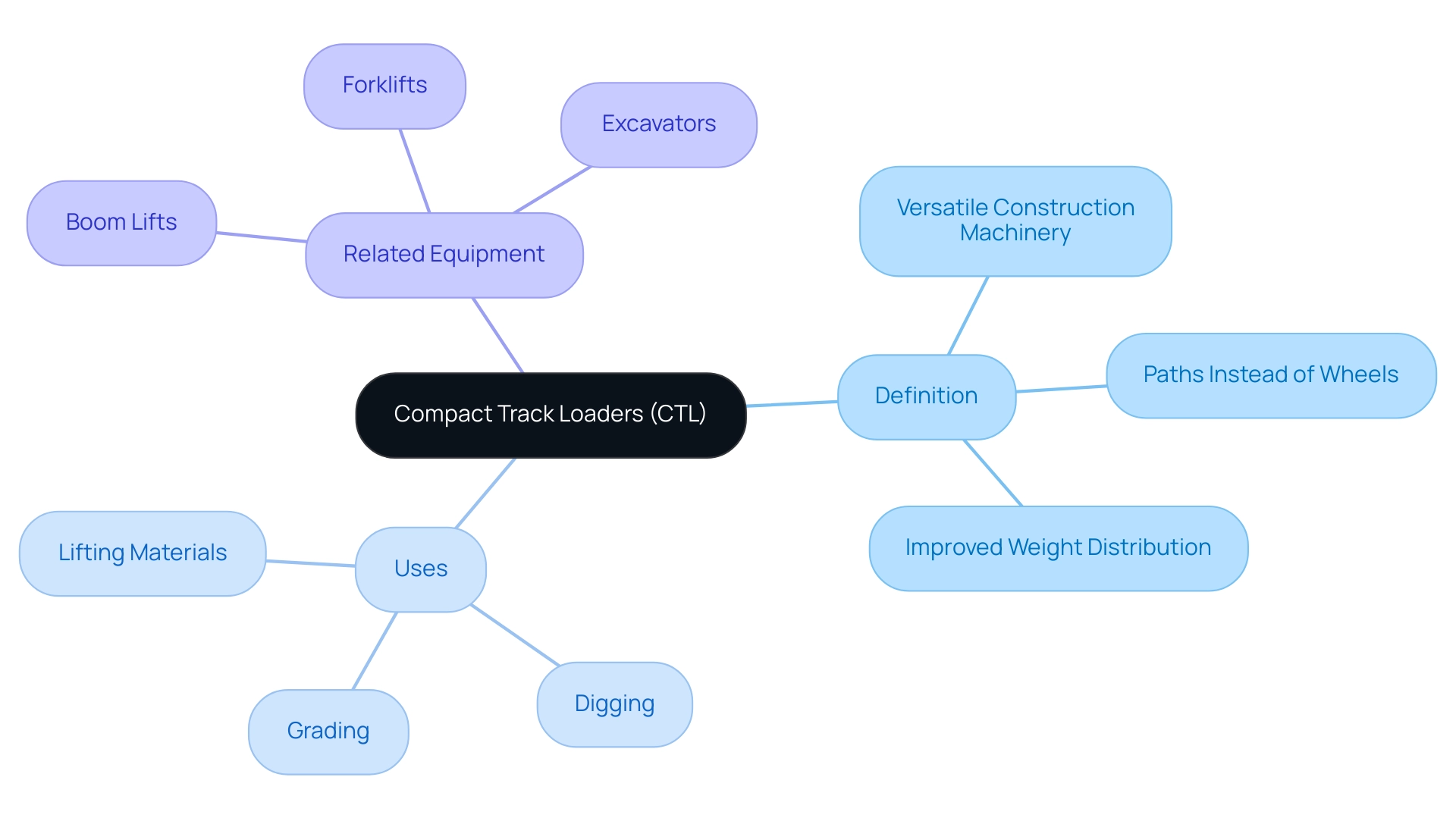
Essential Tips for Renting Compact Track Loaders
When opting for a compact track loader rental, there are several crucial tips to remember to guarantee a successful experience. First, assess the specific needs of your project, including the type of tasks you will be performing and the terrain you will be working on. This will help you select the appropriate size and model of the loader.
Second, inquire about the leasing company's maintenance practices and ensure the equipment is in good working condition before taking it on-site. It's also advisable to review lease agreements thoroughly, paying attention to terms related to insurance, liability, and any additional fees. Lastly, consider the lease duration; some firms provide better rates for longer agreements, which can result in cost savings if you intend to use the equipment for an extended period.
By following these tips, renters can avoid common mistakes and ensure they have the right equipment, including compact track loader rental, to complete their projects efficiently.
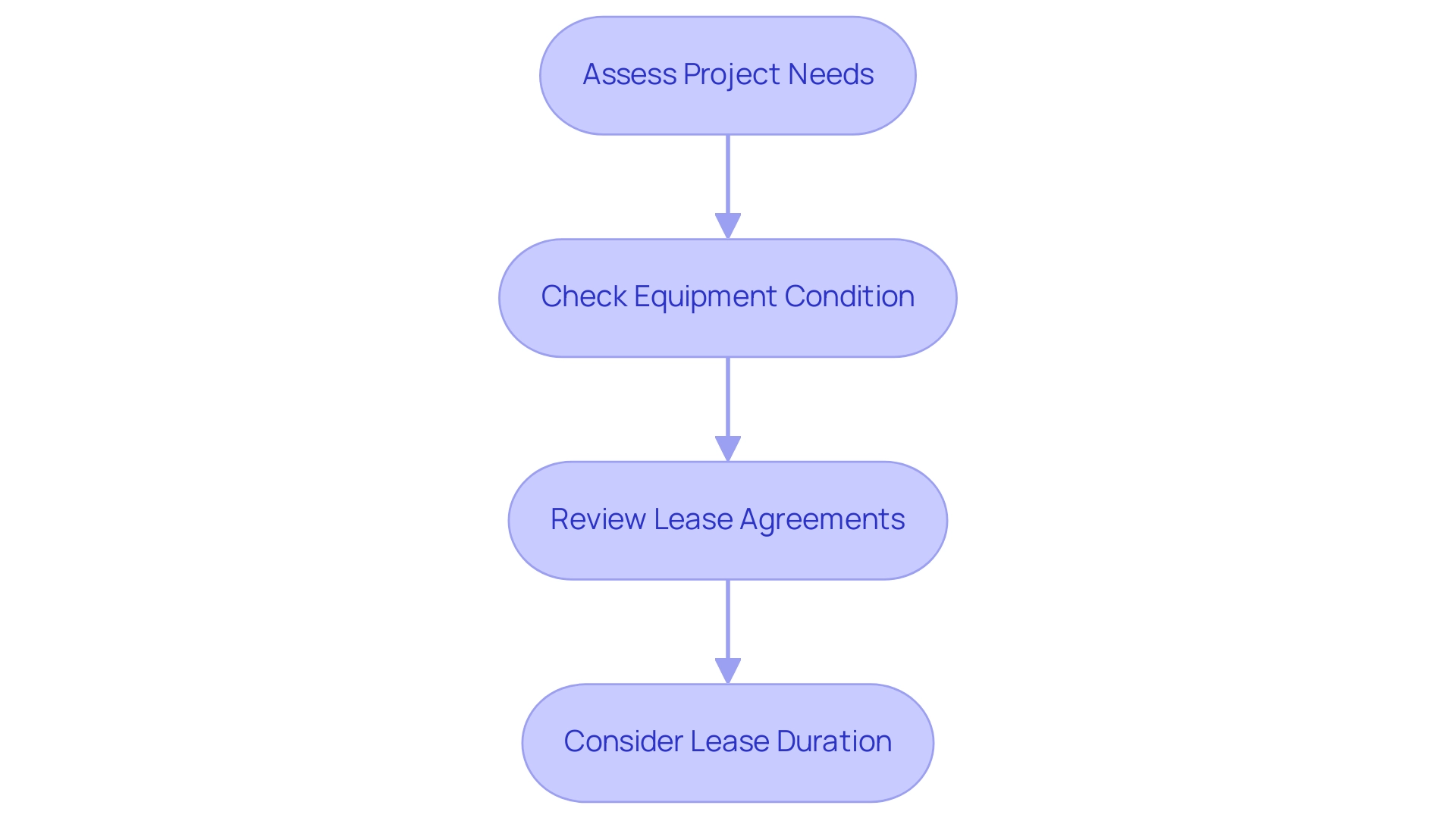
Understanding the Costs Involved in Rental Agreements
When considering a compact track loader rental, it is important to understand the various costs that may be involved in the lease agreement. The base leasing price is typically the most visible cost, but additional fees can quickly accumulate. These may include:
- Delivery and pickup charges
- Insurance costs
- Maintenance fees
Be sure to inquire with the lease company about these potential extras and whether they are included in the quoted price. Additionally, consider the costs associated with fuel and any necessary attachments for specific tasks, as these can also impact your overall budget. A comprehensive understanding of these costs will help you plan your project finances more effectively and avoid surprises during the compact track loader rental.
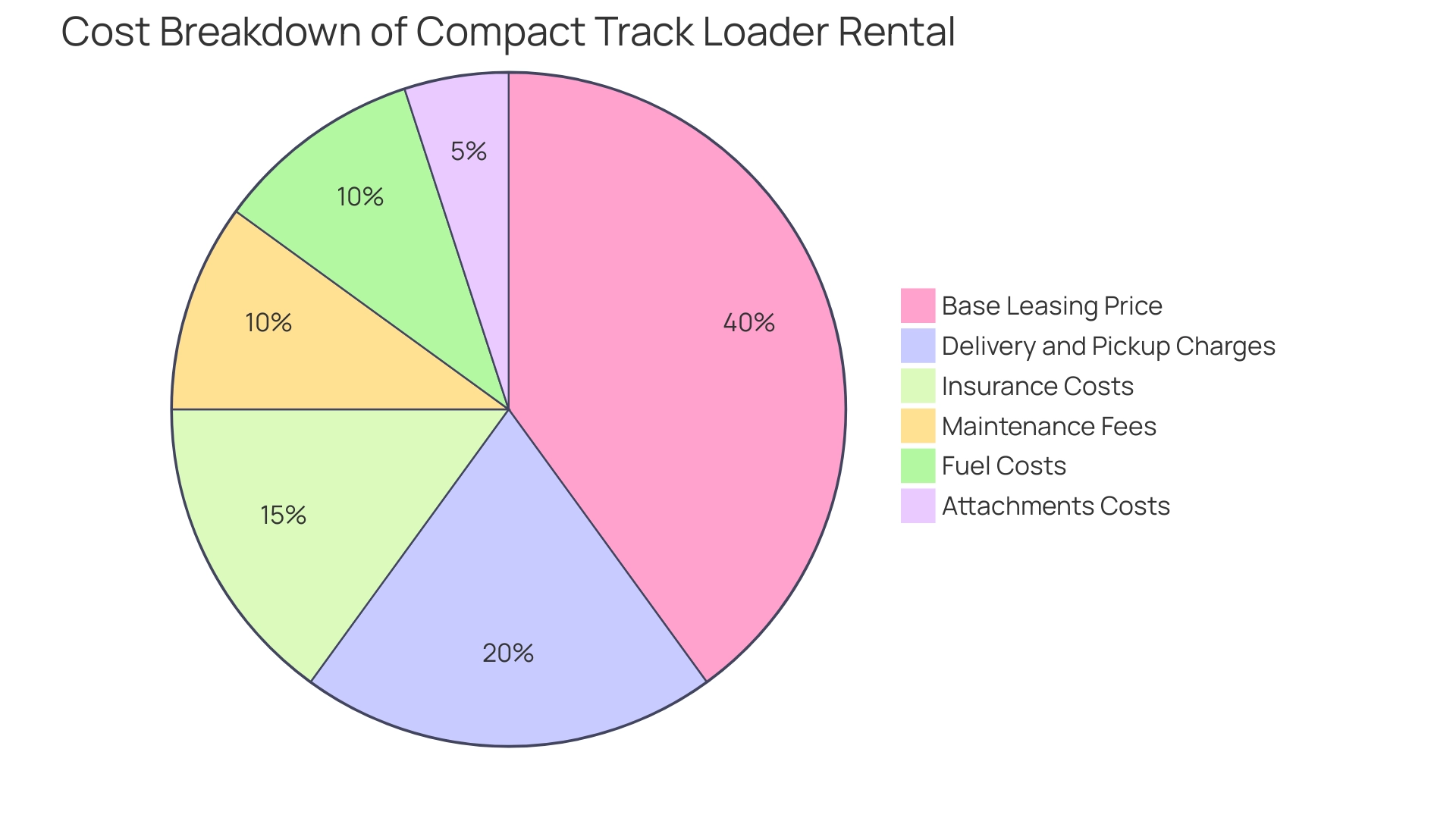
Safety Considerations When Using Compact Track Loaders
Safety is crucial when operating small machinery, as improper use can result in serious accidents. Operators should always wear appropriate personal protective equipment (PPE), including:
- Helmets
- Gloves
- High-visibility clothing
It's also crucial to conduct a pre-operation inspection of the equipment to ensure all systems are functioning correctly.
Additionally, operators should be trained and familiar with the specific model they are using, as controls and features can vary. Maintaining a clear communication line with ground personnel can help prevent accidents, especially in busy work environments. By adhering to these safety guidelines, operators can greatly minimize the chance of incidents while using small machinery.
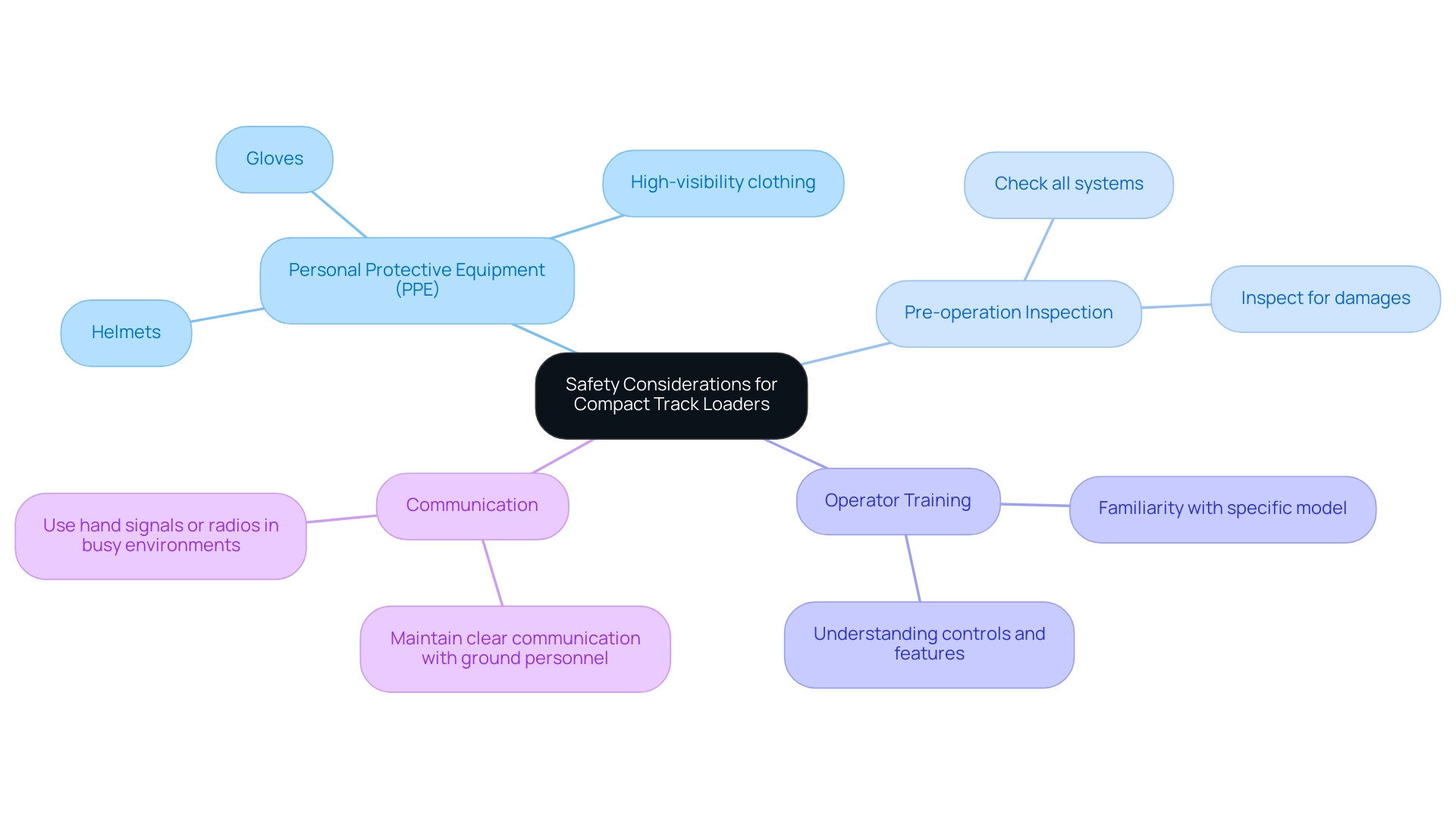
Maintenance Tips for Rental Compact Track Loaders
Keeping a leased compact machinery loader is essential for guaranteeing it functions efficiently and effectively during your usage period. Renters should familiarize themselves with the basic maintenance requirements, such as:
- Checking fluid levels
- Inspecting pathways for wear
- Cleaning air filters
Regularly monitoring these aspects can prevent mechanical issues and reduce the risk of equipment failure on-site.
It's also advisable to report any concerns or irregularities to the rental company promptly, as they can provide assistance and service as needed. By taking these maintenance measures, renters can enhance the performance of their compact track loader rental and ensure smooth operation throughout their project.
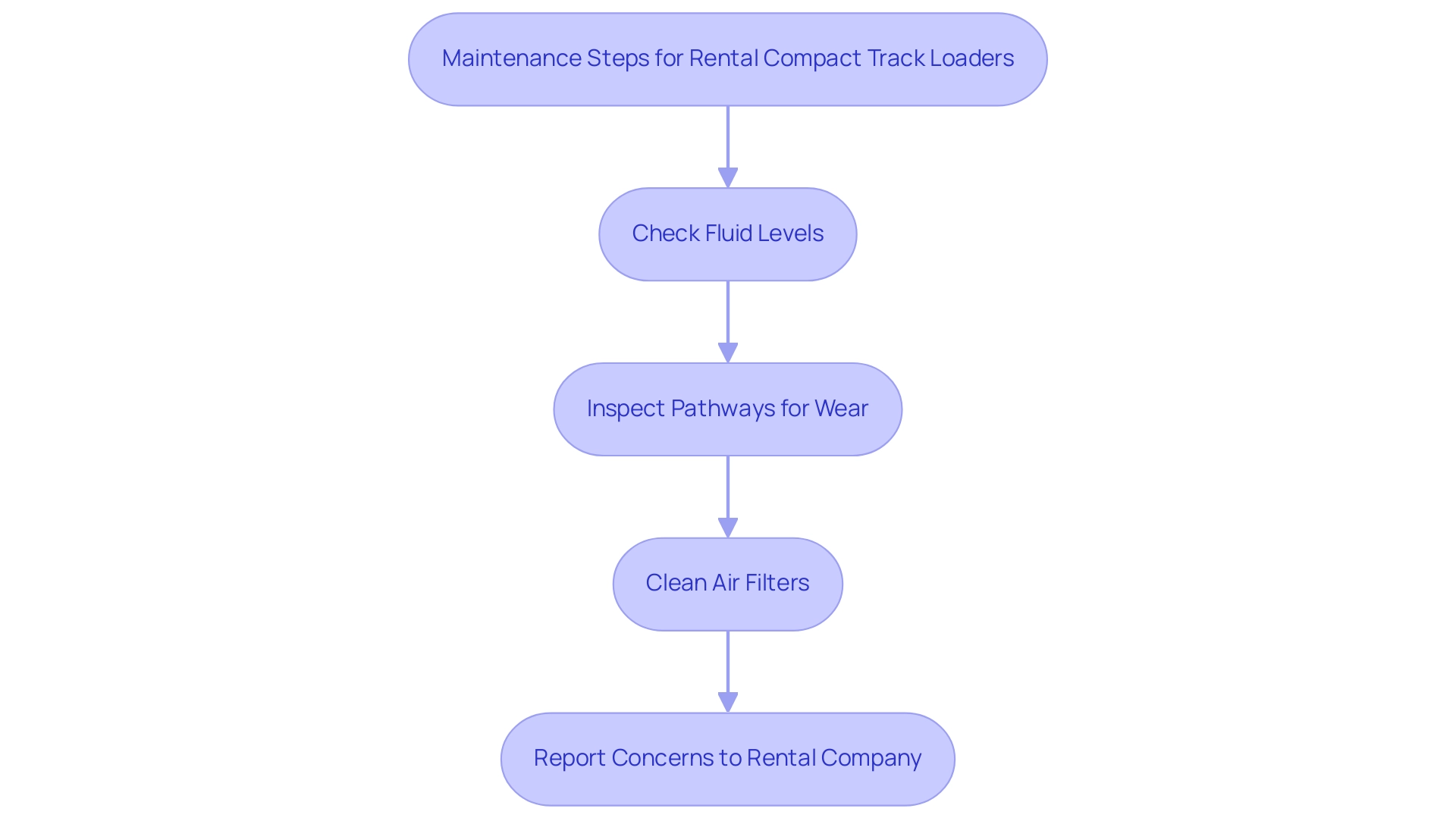
Conclusion
Compact track loaders are essential tools that enhance efficiency and versatility in construction and landscaping projects. Understanding their definition and applications is critical for those considering a rental. These machines excel in tasks such as grading, digging, and lifting, particularly in challenging terrains where their compact design allows for superior maneuverability.
When renting a compact track loader, careful planning is necessary. Assessing project needs, inquiring about maintenance practices, and reviewing rental agreements can prevent common pitfalls. Additionally, being aware of the various costs involved, including potential extras, can help maintain budget control.
Safety should never be overlooked; wearing appropriate personal protective equipment and conducting thorough inspections can mitigate risks. Moreover, maintaining the equipment during the rental period ensures optimal performance and reduces the likelihood of mechanical issues.
By following these guidelines, renters can maximize the benefits of compact track loaders, leading to successful project outcomes. With the right preparation and understanding, the rental process can be streamlined, ultimately enhancing productivity and safety on the job site.




